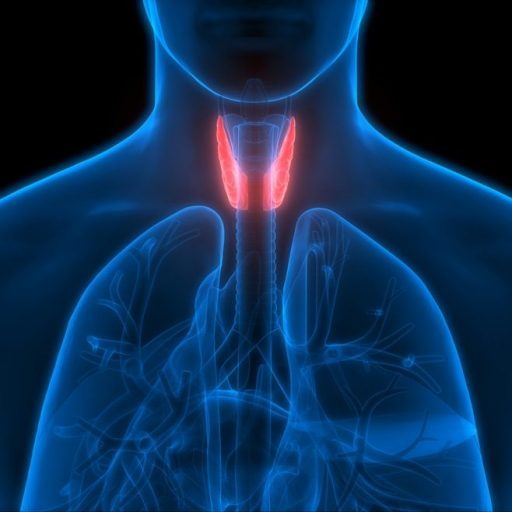Unveiling the Hidden Connection
As we age, our bodies undergo a myriad of changes, some of which can significantly impact our cognitive health. Hypothyroidism, a condition commonly seen in the senior population, has been identified as a potential contributor to the risk of developing dementia. This article delves into the intricate relationship between these two conditions, offering insights into the latest scientific findings, prevention strategies, and treatment options, all while prioritizing the well-being and quality of life of our elderly loved ones.
Understanding Hypothyroidism in Seniors: More Than Just a Slow Metabolism
Hypothyroidism occurs when the thyroid gland fails to produce sufficient thyroid hormones, leading to a host of symptoms such as fatigue, weight gain, and cognitive sluggishness. In seniors, these symptoms can be mistakenly attributed to aging, making early detection and treatment a challenge. Regular thyroid function screenings are vital to prevent the progression of hypothyroidism and its potential impact on mental acuity.
The Hypothyroidism-Dementia Nexus: Deciphering the Science
Emerging research suggests that hypothyroidism may double the risk of dementia in older individuals. While the exact mechanisms remain under investigation, it is believed that thyroid hormones play a crucial role in maintaining neuronal health and cognitive function. Ensuring optimal thyroid hormone levels through appropriate treatment may be a key strategy in safeguarding the cognitive health of our aging population.
Proactive Measures: A Dual Approach to Treatment and Prevention
The management of hypothyroidism in seniors is twofold: addressing the hormonal imbalance with tailored medication and adopting lifestyle interventions to bolster overall brain health. Levothyroxine, a synthetic thyroid hormone, is the cornerstone of hypothyroidism treatment, with dosage carefully calibrated to each individual’s needs. Complementary lifestyle modifications, such as a nutrient-rich diet, regular physical exercise, and cognitive activities, can further enhance cognitive resilience against dementia.
Enhancing Daily Life: Supportive Strategies for Affected Seniors
The synergy of hypothyroidism and dementia can significantly disrupt daily life for seniors, necessitating a compassionate and comprehensive support system. From simplifying daily routines to providing mental stimulation and social engagement, caregivers play an instrumental role in maintaining the independence and dignity of those affected.
Looking Ahead: The Horizon of Research and Hope
While strides have been made in understanding the connection between hypothyroidism and dementia, the medical community continues to explore this relationship. Ongoing research is crucial in developing more effective prevention and treatment modalities, offering hope for future advancements in the care of our senior population.
In Conclusion: A Commitment to Senior Health and Quality of Life
Recognizing and addressing hypothyroidism’s role in cognitive decline is a critical aspect of geriatric care. By combining vigilant medical oversight with a nurturing environment, we can significantly improve the lives of seniors, allowing them to enjoy their golden years with clarity and joy.
About the Author: Samantha Clarke, RN, Endocrinology Specialist
With over two decades of experience in thyroid health management, Samantha Clarke brings a wealth of expertise to the table. As a healthcare professional and a patient herself, she offers a unique perspective that enriches her contributions to the “Thyroid in Women” platform.
Reference Links
The link provides additional information and resources on hypothyroidism and its connection to dementia.

